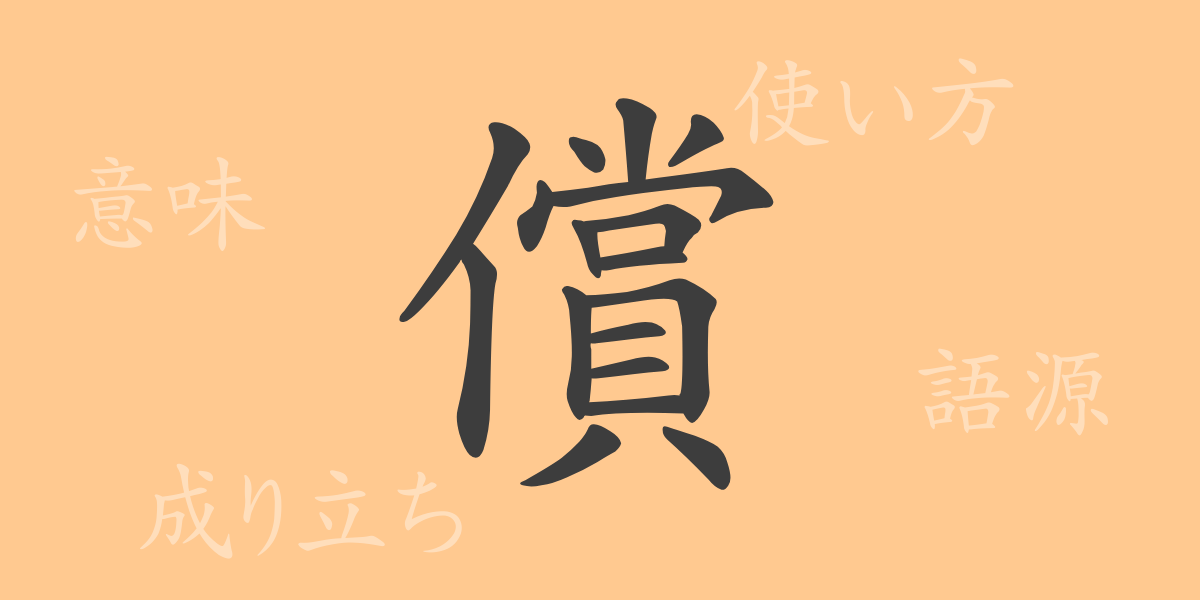In Japanese, each kanji harbors a unique history and meaning, enriching the language’s expressive capability. The kanji “償(ショウ)” embodies deep aspects of emotions and actions. This article delves into the etymology of “償,” its meanings and usage, readings, stroke count, and radical. Additionally, it introduces idioms and phrases incorporating “償,” aiding in understanding its application in everyday life. Let’s explore the allure of “償” as a common kanji in Japanese.
Origins of 償(ショウ)
The kanji “償” evolved from ancient Chinese pictographs. Originally linked with “賞,” it comprised the “貝” (shell) part, symbolizing held treasures, and “示” (show), indicating ceremonial offerings. This reflects ancient practices where shells were used as currency. Over time, “償” came to signify repayment or compensation for borrowed items or actions performed.
Meaning and Usage of 償(ショウ)
“償” primarily means “to compensate,” “to pay a price,” or “to indemnify.” It is used in contexts of repaying money or goods, as well as fulfilling moral obligations. Commonly, it appears in scenarios where some form of payment is made to fulfill duties or responsibilities.
Readings, Stroke Count, and Radical of 償(ショウ)
The kanji “償” has several distinctive features:
- Readings: The on’yomi (音読み) is “ショウ,” with no common kun’yomi (訓読み).
- Stroke Count: “償” consists of 17 strokes.
- Radical: Its radical is “人” or its variant “亻.”
Idioms, Phrases, and Proverbs Using 償(ショウ) and Their Meanings
Various idioms and phrases incorporate “償,” each reflecting its rich semantic value:
- 賠償(ばいしょう) – Compensation or indemnity paid for damages caused.
- 弁償(べんしょう) – Repayment for something damaged or lost.
- 償還(しょうかん) – Repayment of borrowed money or redeemed bonds.
- 懺悔償い(ざんげつぐない) – Acts of atonement and repentance for past mistakes.
Conclusion on 償(ショウ)
The kanji “償” conveys deep meanings of fulfilling responsibilities for one’s actions or debts. In Japanese culture, it often symbolizes moral values and responsibility, reflected in various everyday expressions. Through this article, we’ve deepened our understanding of “償,” gaining insight into the profound expressions of the Japanese language.

























